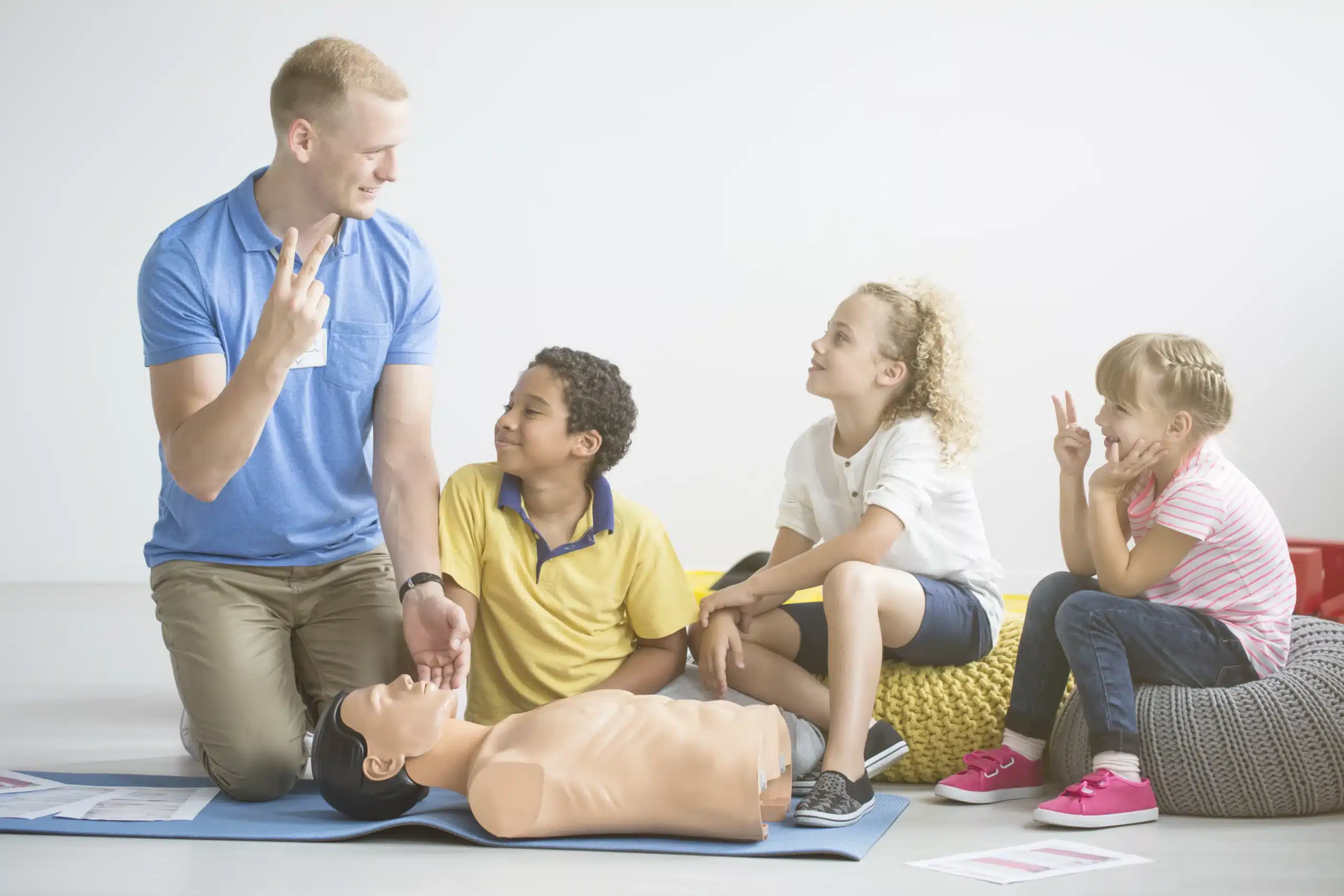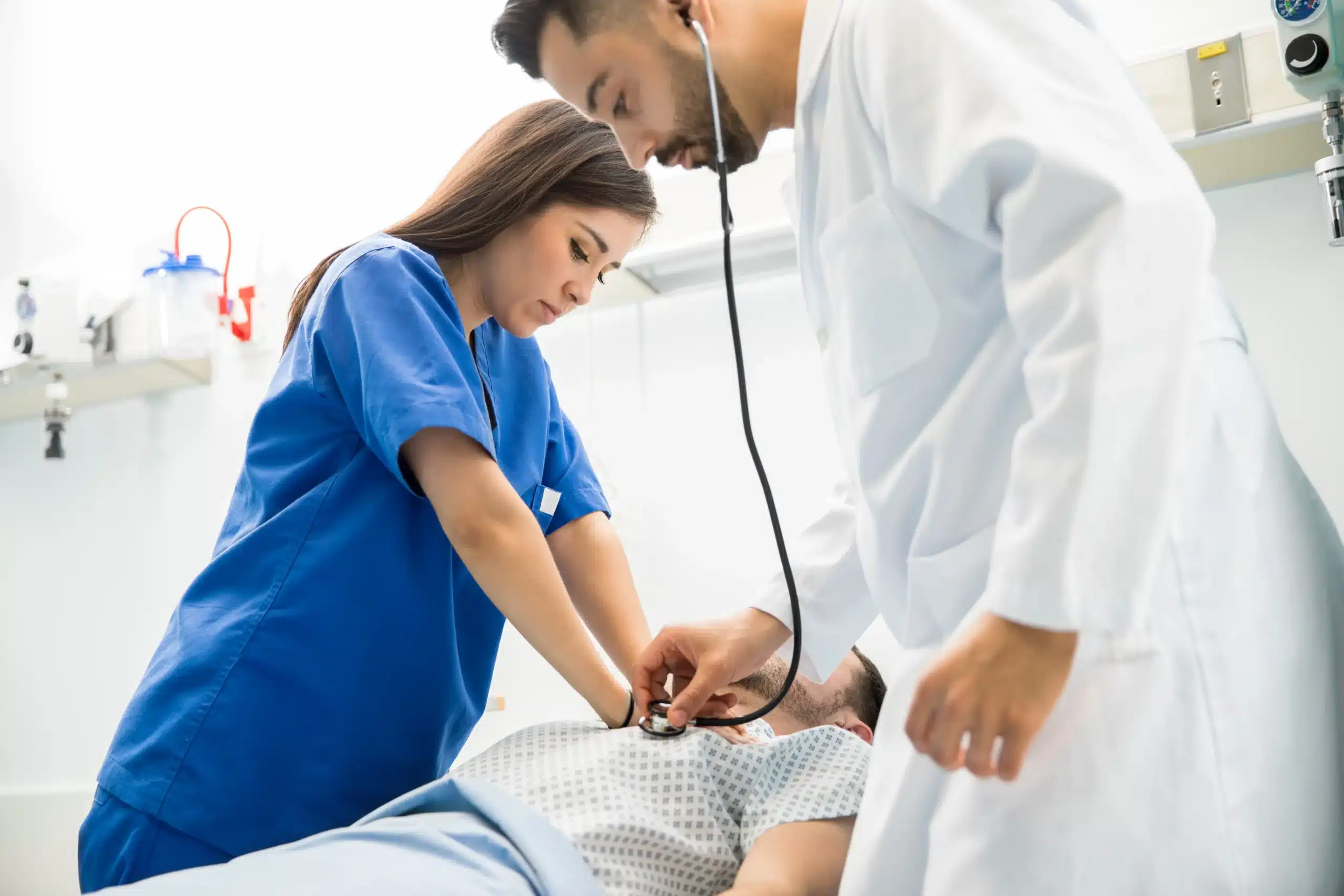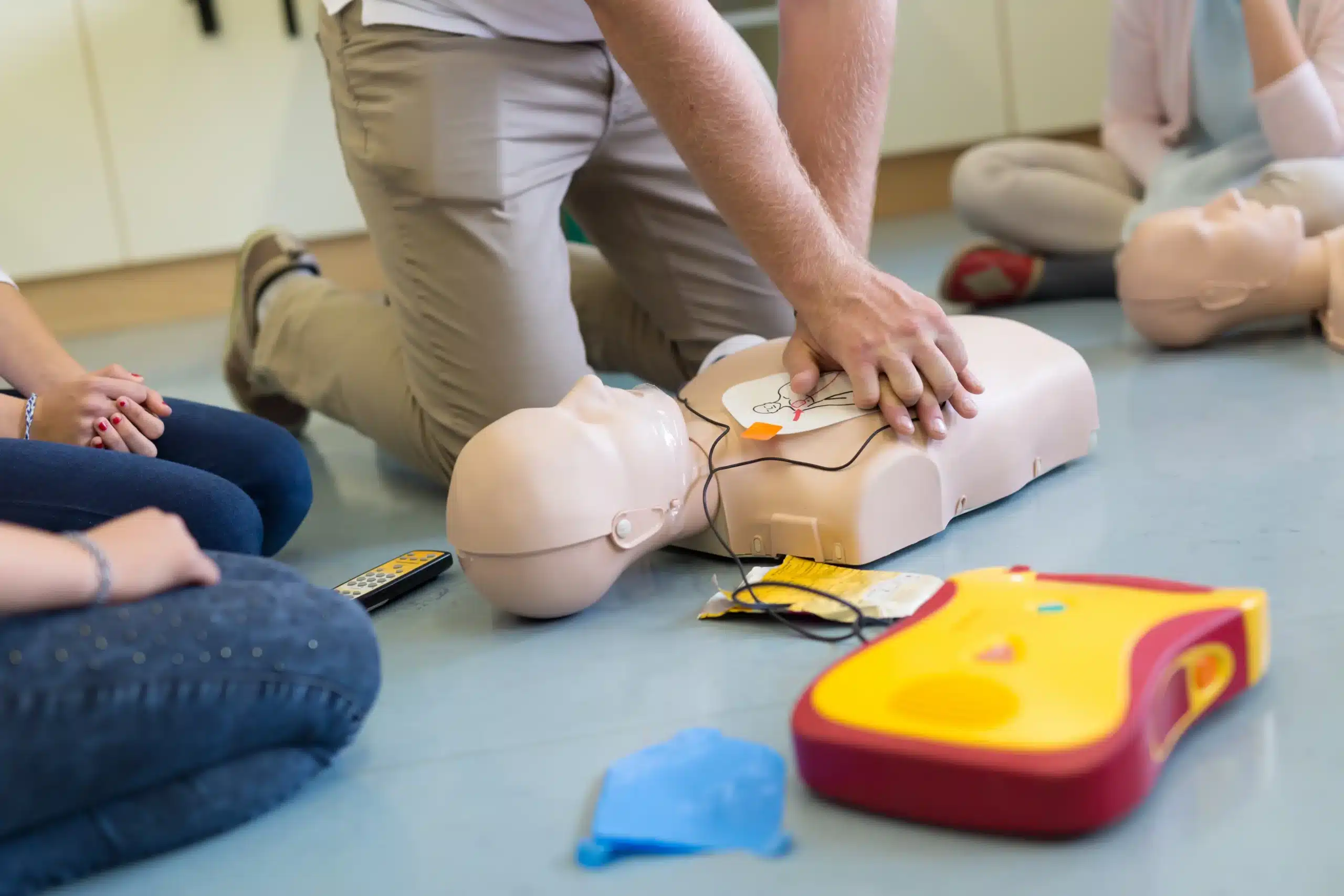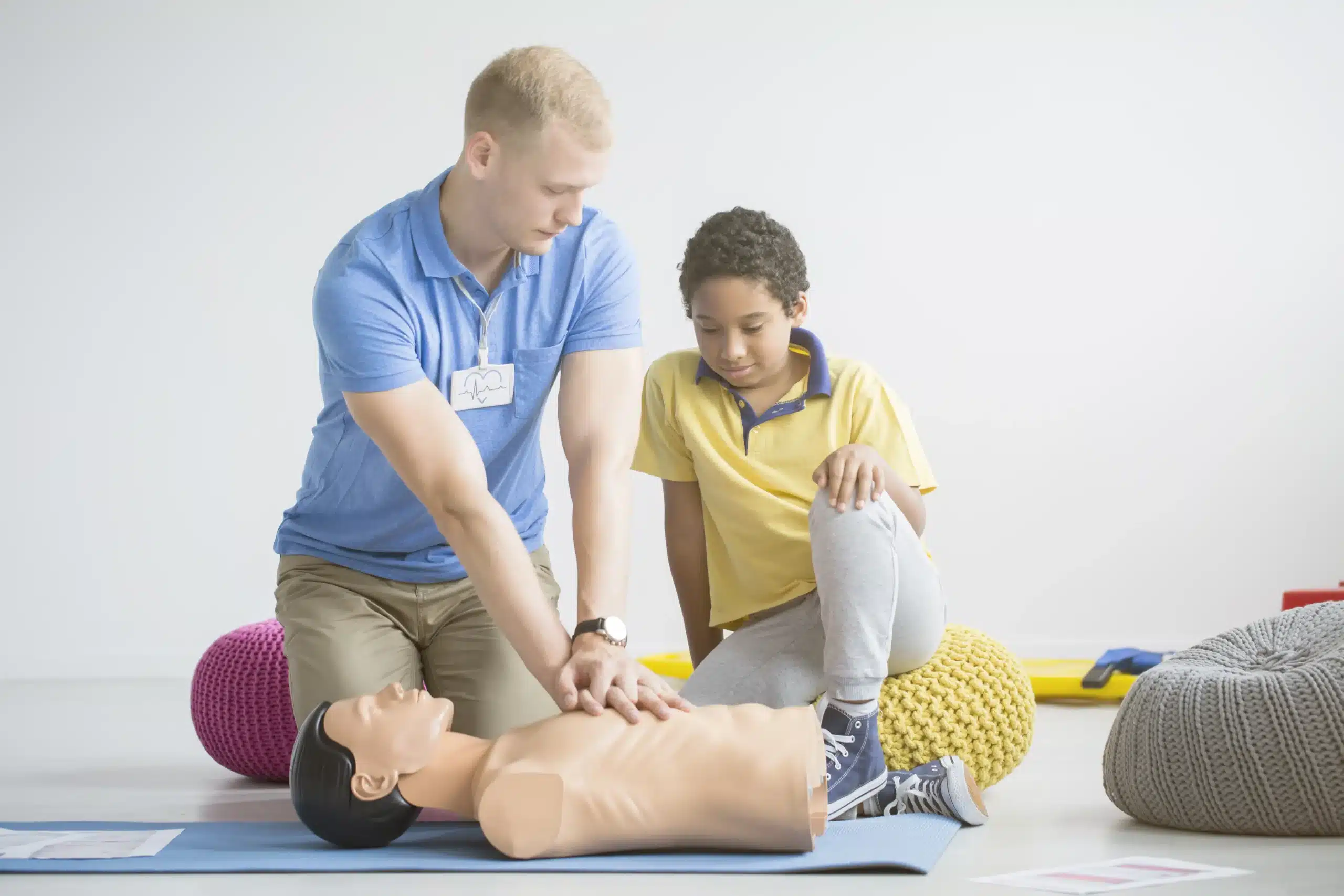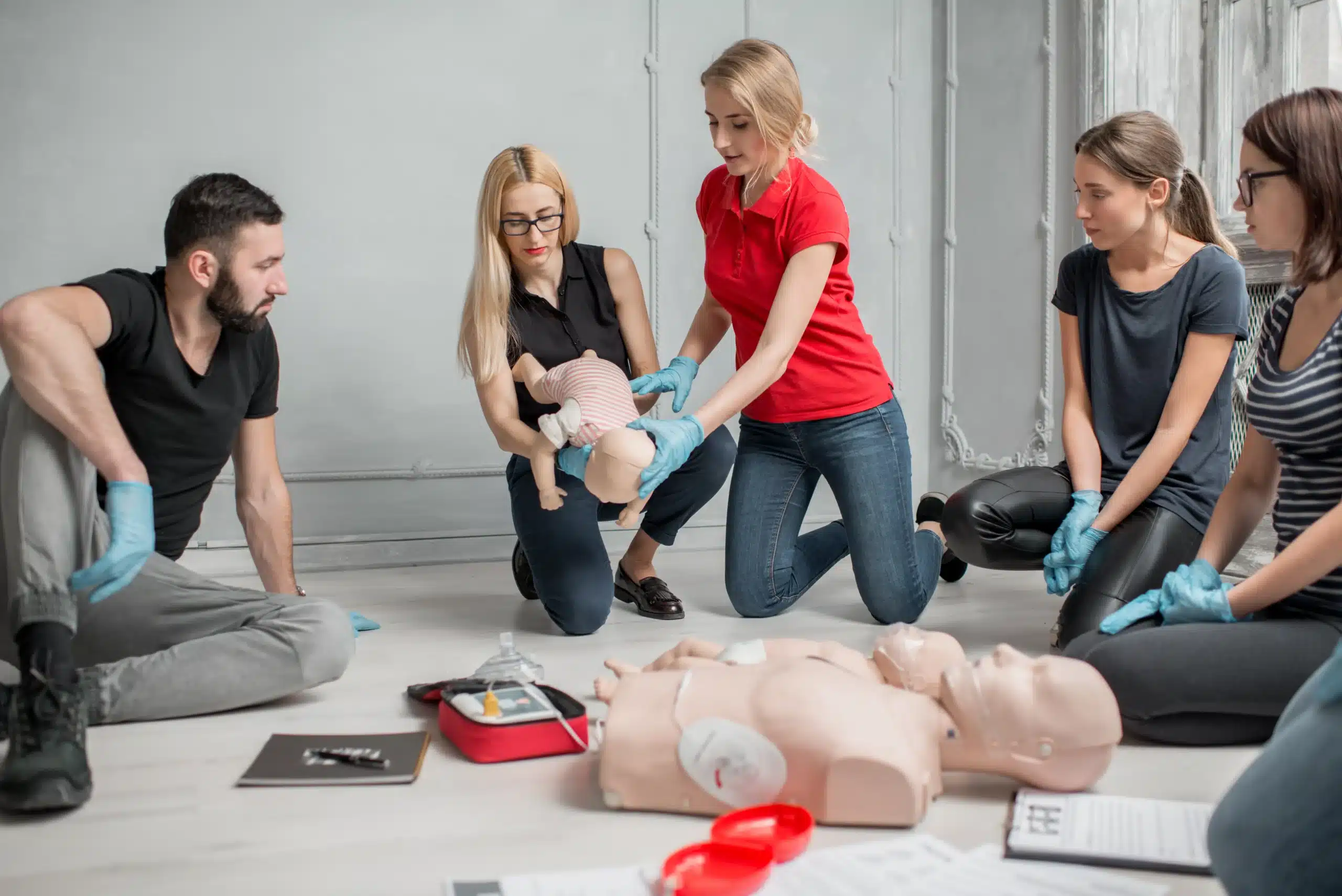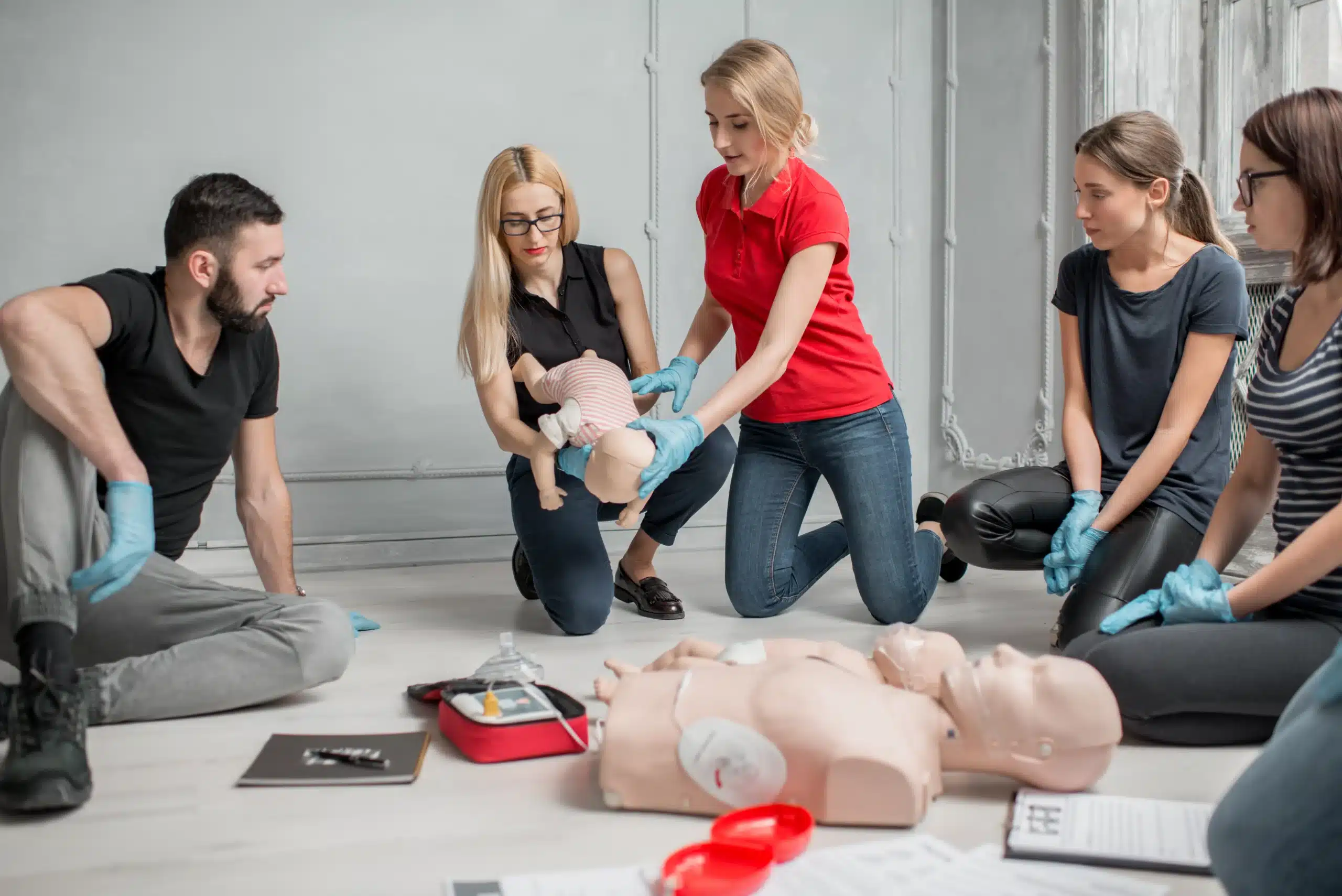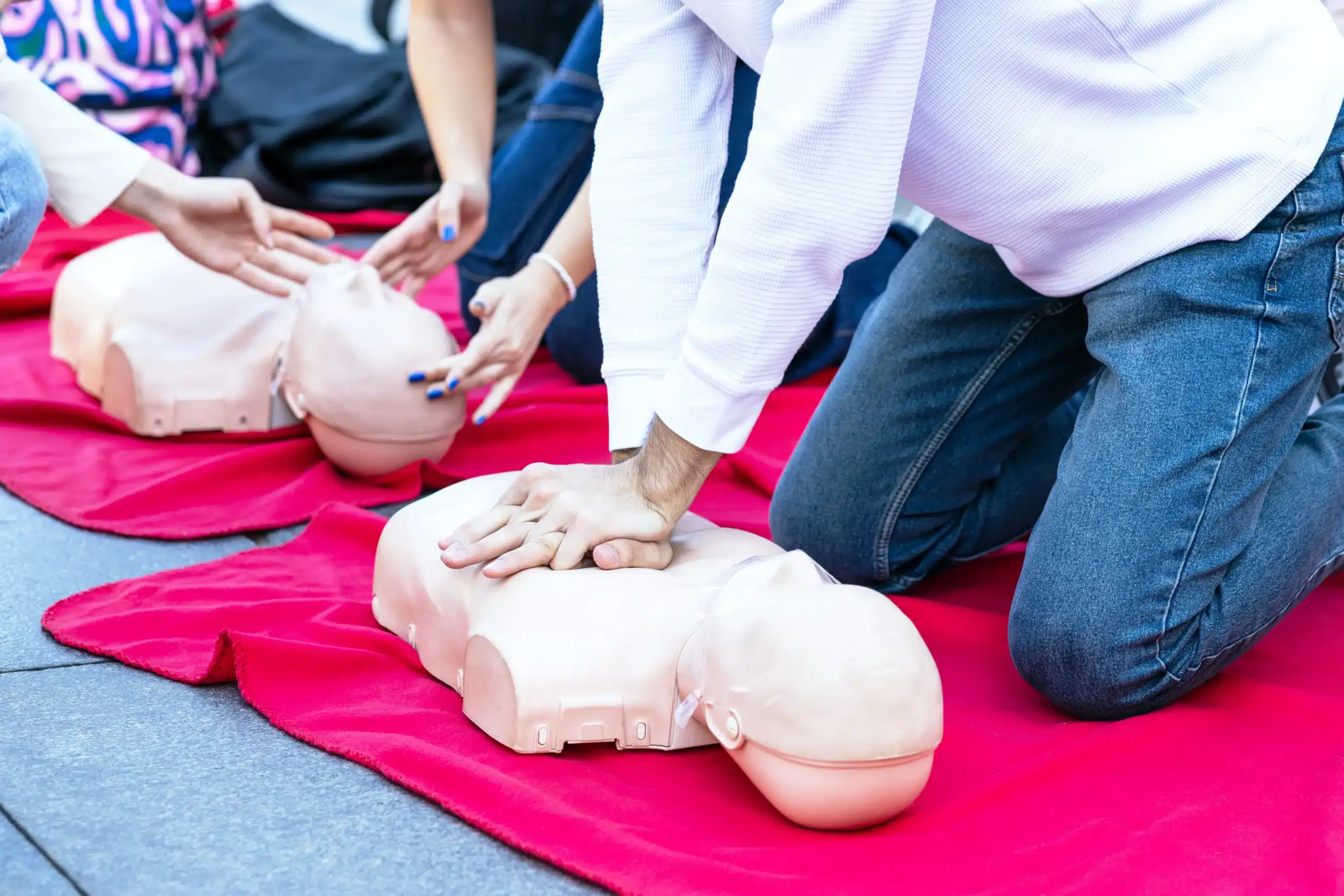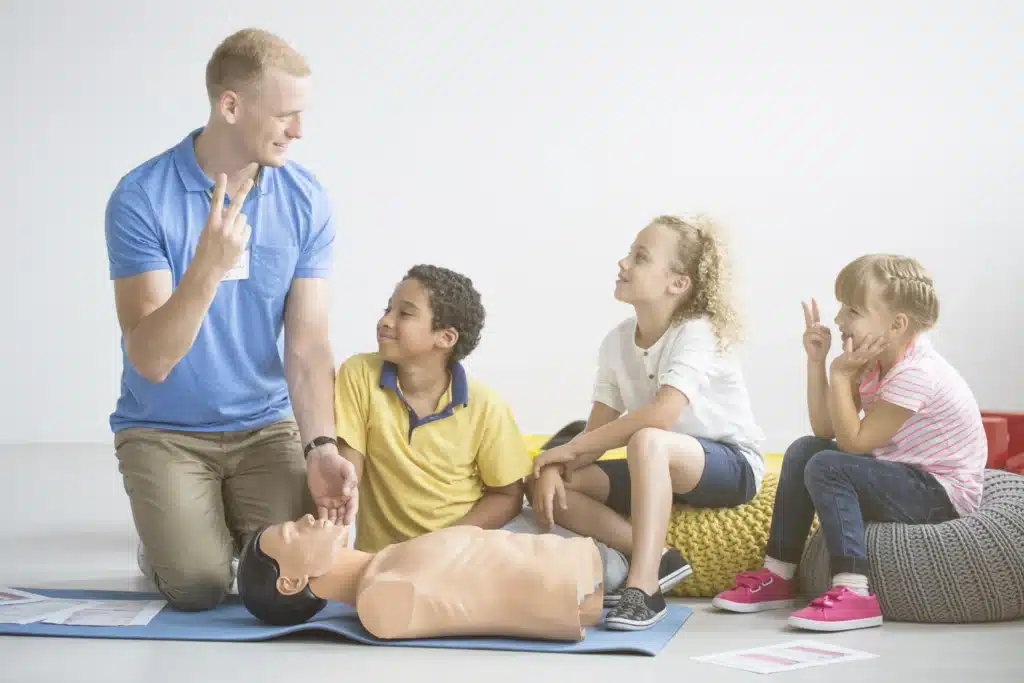Working in healthcare in Berkeley means being prepared for anything. From cardiac arrest to respiratory distress, emergencies can happen anytime, anywhere. BLS for healthcare providers in Berkeley equips you with the life-saving skills to respond confidently and effectively. This article explores the ins and outs of BLS certification, including what to expect in a course, where to find reputable training providers, and how to maintain your certification. We’ll also discuss the career advantages of BLS and why it’s a must-have for healthcare professionals in today’s fast-paced medical environment.
Key Takeaways
- BLS builds essential skills for healthcare professionals: It goes beyond standard CPR, providing specialized training for managing cardiac arrest, respiratory distress, and airway obstructions in medical settings. These skills are crucial for patient safety and can significantly impact outcomes in emergencies.
- Finding the right BLS course is key: Consider factors like cost, schedule, and instructor credentials. AHA-certified courses ensure adherence to the latest guidelines. Choose a learning format—in-person, blended, or online—that fits your learning style and schedule.
- Maintaining BLS proficiency requires ongoing effort: Recertify every two years and stay updated on the latest guidelines and techniques through continuing education resources. Regularly practicing your skills ensures you’re prepared to respond effectively in real-world emergencies.
What is BLS for Healthcare Providers?
Basic Life Support (BLS) is a step up from standard CPR training, designed for healthcare professionals and first responders like doctors, nurses, EMTs, and firefighters. It encompasses everything in regular CPR training, plus specialized techniques for handling cardiac arrest, respiratory distress, and airway obstructions. Think of it as CPR with a healthcare focus. BLS certification equips you with the knowledge and hands-on skills to respond effectively to life-threatening emergencies in medical settings. Our BLS courses are American Heart Association certified and cover all the essentials.
Key BLS Training Components
BLS courses cover essential lifesaving techniques. You’ll learn CPR for infants, children, and adults, including how to recognize and respond to choking. The training also includes two-person CPR, allowing you to practice coordinated resuscitation with a partner. You’ll also become proficient with an AED (automated external defibrillator), a vital tool for restoring normal heart rhythm during cardiac arrest. Group discounts are often available for CPR and first-aid training, making it cost-effective for teams.
Why BLS Matters in Healthcare
High-quality BLS is essential in healthcare. It’s a crucial part of the “chain of survival,” the sequence of actions that maximize the chances of surviving cardiac arrest. When BLS is performed quickly and correctly, following evidence-based guidelines, patient outcomes improve dramatically. For healthcare providers, BLS is more than just a certification—it’s a core skill directly impacting patient safety and can truly make a difference.
Common BLS Certification Myths
One common misconception is that only doctors and nurses need BLS certification. In reality, it’s vital for all healthcare professionals, even those in non-emergency roles. Anyone in a healthcare setting could face a situation requiring BLS, from therapists to administrative staff. Another misunderstanding is the scope of BLS. Some think it’s just a CPR refresher, but BLS training covers more advanced techniques and critical thinking skills specific to healthcare. Understanding the importance and breadth of BLS, and dispelling these common myths, is crucial for everyone in the healthcare field. Contact us to learn more about our BLS certification courses.
Top BLS Certification Providers in Berkeley
Finding the right BLS certification course can feel overwhelming, but several reputable providers in Berkeley make the process straightforward. Here’s a closer look at some of your top options:
Safety Training Seminars
Safety Training Seminars is a woman-owned American Heart Association (AHA) Training Center. They offer high-quality AHA BLS, ACLS, PALS, CPR, and First-aid courses in Berkeley. They pride themselves on flexible scheduling, with classes offered every day of the week to accommodate busy schedules. Explore their website for more information on BLS, ACLS, PALS, CPR and First Aid courses. They also serve surrounding areas, expanding access to these crucial life-saving skills.
American Heart Association
The American Heart Association (AHA) sets the standard for BLS training. Their BLS courses in Berkeley are designed for healthcare professionals and anyone who needs to perform CPR and other essential cardiovascular life support skills. AHA certification is widely recognized and respected in the healthcare field. Their comprehensive approach ensures you’ll be well-prepared to respond to emergencies in various settings. You can find a local training center or learn more about their programs on their website.
American Red Cross
The American Red Cross is another trusted name in CPR and BLS training. They offer a variety of course formats, including in-person, online, and blended learning (a combination of online and in-person instruction). Their CPR/AED classes in Berkeley provide a two-year certification that meets OSHA requirements. This flexibility allows you to choose the learning style that suits your needs and schedule. You can browse their available courses and register online.
Berkeley CPR Classes
Berkeley CPR Classes provides a range of certifications, including CPR, BLS, ACLS, and more. They offer daily American Heart Association courses, ensuring convenient scheduling options. They also emphasize affordability, guaranteeing the lowest prices in Alameda County. Plus, their Resuscitation Quality Improvement (RQI) program offers a streamlined and modern approach to BLS certification. Visit their website to learn more about their courses and register.
BLS Course Formats and Duration
Choosing the right BLS course format depends on your learning style and schedule. Let’s break down the most common options available in Berkeley: in-person, online, and blended learning.
In-Person BLS Training
In-person BLS training remains a popular choice, especially for those who value hands-on learning and direct interaction with an instructor. These courses provide the opportunity to practice essential skills like chest compressions, rescue breaths, and AED use with training manikins and other equipment in a controlled environment. You’ll receive immediate feedback from certified instructors and can ask questions in real-time. Safety Training Seminars offers in-person BLS courses in nearby San Pablo, conveniently serving the Berkeley area. These courses often have flexible scheduling options to accommodate various work shifts.
Online BLS Options
Online BLS courses offer flexibility for those with busy schedules or limited access to in-person training. These self-paced programs allow you to study the material whenever and wherever it’s convenient. While online courses offer theoretical knowledge and virtual demonstrations, they typically don’t include the hands-on skills assessment required for full BLS certification. The American Red Cross offers online CPR and first aid training, which can supplement hands-on practice. If you choose an online-only option, double-check whether it meets the requirements for your workplace or licensing needs.
Blended BLS Learning
Blended learning combines online convenience with the practical application of in-person skills sessions. You’ll typically complete the cognitive portion of the course online, covering topics like the chain of survival, high-quality CPR, and team dynamics. Then, you’ll attend a shorter, in-person session to demonstrate your skills and receive instructor feedback. The American Heart Association offers blended learning options for BLS. This format is often the most efficient way to achieve full BLS certification while accommodating busy schedules.
BLS Certification Cost & Value in Berkeley
Understanding the cost and value of BLS certification is crucial for healthcare providers in Berkeley. Let’s break down the typical price range, explore ways to save, and discuss why this investment is worthwhile for your healthcare career.
Average BLS Price Range
In Berkeley, the average cost for a Basic Life Support (BLS) certification course is around $120. This typically covers the online portion, the in-person skills session, and your official BLS certification card. It’s a comprehensive package designed to get you certified efficiently. For a detailed breakdown of what’s included, check out the BLS course details.
BLS Discounts and Promotions
Want to save some money? Several options exist for discounted BLS certification. Safety Training Seminars often offers promotions, sometimes with courses available for under $100. Also, inquire about group discounts, especially if you’re coordinating training for multiple staff members at a healthcare facility. Group discounts can significantly reduce the cost for everyone.
BLS ROI for Healthcare Professionals
Think of BLS certification as an investment in your career, not just an expense. BLS training equips you with life-saving skills, directly impacting patient outcomes and making you a more valuable asset in any healthcare setting. These skills are in high demand, and many healthcare employers require BLS certification. It’s a credential that can open doors to new job opportunities and support your long-term career growth.
What to Expect in a BLS Course
Getting ready to take a BLS course? Here’s a preview of what you’ll learn and experience:
Key BLS Skills You’ll Learn
BLS courses cover the core skills needed to respond to life-threatening emergencies. You’ll learn how to perform high-quality CPR for adults, children, and infants. The course also teaches how to use an Automated External Defibrillator (AED) and how to relieve choking. These skills are essential for any healthcare provider. For more details, visit our BLS course page.
Hands-on BLS Practice
BLS isn’t just about theory—it’s about action. Expect plenty of hands-on practice during your course. You’ll work with mannequins to practice CPR techniques on adults, children, and infants. The instructors will guide you through two-person CPR scenarios and proper AED use, giving you the confidence to respond effectively in real-life situations. We offer a variety of CPR and First-Aid courses in San Pablo.
BLS Assessment and Certification
After completing the course requirements, you’ll receive a BLS Provider Course Completion card, valid for two years. This nationally recognized certification confirms you have the skills and knowledge to provide BLS care. Our low price guarantee ensures you’re getting the best value for this important credential.
BLS Instructor Qualifications & Course Quality
Choosing the right BLS course is crucial for healthcare providers. It’s not just about getting certified; it’s about receiving high-quality training that prepares you to confidently respond to emergencies. This section explores the importance of qualified instructors and adherence to the latest training standards.
Instructor Credentials
The quality of your BLS training depends on your instructor’s expertise. Look for courses led by certified American Heart Association (AHA) instructors. These instructors undergo rigorous training and maintain up-to-date knowledge of the latest resuscitation guidelines. Safety Training Seminars, for example, is a woman-owned AHA Training Center, ensuring their instructors meet these requirements. This commitment to instructor quality provides students with a solid foundation in BLS principles and techniques. A knowledgeable instructor can answer your questions, offer personalized feedback, and create a supportive learning environment.
Training Standards & Updates
BLS training constantly evolves. The science behind resuscitation changes, and guidelines are regularly updated to reflect the latest research. High-quality BLS courses adhere to these updates, ensuring you learn the most effective techniques. The AHA’s BLS Provider Course is regularly revised to align with current scientific evidence. These updates often include changes to CPR techniques, ventilation methods, and the use of AEDs. Choosing a course that follows the 2020 AHA Guidelines for CPR and ECC ensures your training reflects best practices and maximizes patient outcomes. This commitment to staying current is a hallmark of a reputable BLS training provider.
Maintain Your BLS Certification
As a healthcare provider, maintaining your BLS certification is crucial for providing high-quality patient care. Staying current with the latest guidelines and techniques can significantly impact positive outcomes during emergencies. This section covers the renewal process and continuing education to help you stay prepared.
BLS Renewal Process
BLS certifications are typically valid for two years. The American Heart Association’s BLS Course is designed for healthcare professionals who need to perform CPR and other basic cardiovascular life support skills in various settings. When your certification nears its expiration date, recertification is essential. These courses cover the same core content as the initial BLS training, keeping your skills and knowledge sharp. Safety Training Seminars offers convenient BLS renewal courses in San Pablo, serving the surrounding areas, including Richmond, Berkeley, and Oakland. The American Red Cross also provides BLS recertification as another reputable option.
Continuing Education Options
Beyond formal recertification, continuous learning is key to BLS proficiency. Regularly practicing your BLS skills is essential for maintaining confidence and effectiveness during real emergencies. Use online resources and courses to stay updated with the latest BLS guidelines and techniques. Medicus Training offers valuable insights into mastering these skills. Staying informed about current best practices, including reviewing information on common BLS misconceptions, is crucial for patient safety and demonstrates your commitment to providing excellent care.
Career Benefits of BLS Certification
BLS certification is more than just a credential—it’s a gateway to opportunity in the healthcare field. Whether you’re a seasoned healthcare professional or just starting out, understanding the career advantages of
Job Requirements & Compliance
In healthcare, BLS certification is often a must-have. Most medical facilities require nurses to maintain current BLS certification, ensuring a baseline level of competency in responding to medical emergencies. This isn’t simply a formality; it’s about ensuring patient safety and upholding high standards of care. BLS certification demonstrates that you have the skills to handle critical situations, from cardiac arrest and respiratory distress to airway obstructions. The comprehensive nature of BLS training, which builds upon standard CPR training, makes it essential for compliance in medical environments.
Advance Your Career with BLS
Beyond meeting job requirements, BLS certification can significantly boost your career. For job seekers, a BLS certification shows initiative and makes you a stronger candidate. It tells employers that you’re committed to professional growth and prepared for critical situations. BLS training empowers you to respond effectively in emergencies, creating a safer and more prepared work environment. This benefits patients and strengthens your professional reputation, opening doors to advancement. Whether you’re aiming for a promotion, exploring new specialties, or expanding your skillset, BLS certification is a valuable asset for career growth.
Choose the Right BLS Course in Berkeley
Finding the right BLS course is crucial for healthcare providers in Berkeley. With several options available, it’s important to consider your learning style, schedule, and career goals. This section will guide you through the key factors to consider when selecting a BLS course.
Factors to Consider
Location, schedule, and cost are key factors when choosing a BLS course in Berkeley. Safety Training Seminars, a woman-owned AHA Training Center, offers BLS courses throughout Northern California, including Berkeley. They provide convenient daily classes, from 7 am to 6 pm, combining online learning with in-person skills sessions. The comprehensive course, including the online component, skills test, and certification card, costs $120. Their low price guarantee ensures a competitive rate. For those in the surrounding areas, check their course calendar for CPR and first-aid courses offered in San Pablo, serving Richmond, Berkeley, and Oakland. Safety Training Seminars also provides EMSA Child Care Health and Safety training for childcare providers.
Questions to Ask BLS Providers
Before choosing a BLS course, ask providers about their course formats. Do they offer in-person, blended, or online learning? Select the format that best suits your learning style and schedule. If you need OSHA certification, in-person or blended learning is typically required. Also, inquire about the total cost, including study materials, the skills test, and certification card. Contact Safety Training Seminars with any questions about their BLS courses.
Align BLS with Your Career Goals
BLS certification is essential for many healthcare roles. While often confused with standard CPR/AED training, BLS is designed for healthcare professionals and covers more advanced life-saving techniques. Understanding BLS principles is crucial for patient safety and career advancement. Earning your BLS certification demonstrates your commitment to providing high-quality care and can create new opportunities in the healthcare field.
Resources & Support for BLS-Certified Professionals
Once you’ve earned your BLS certification, connecting with local organizations and staying up-to-date on the latest training is invaluable. This section offers resources to help you do just that.
Local Organizations & Networks
Networking with other BLS-certified professionals offers numerous benefits, from sharing best practices to learning about job opportunities. Safety Training Seminars, a woman-owned AHA Training Center, provides high-quality American Heart Association BLS courses and acts as a central resource for healthcare professionals in Berkeley and beyond. Offering courses in over 60 cities across Northern California, they’ve built a broad network of certified professionals. You can find a course near you.
Ongoing BLS Training
Maintaining your BLS skills is crucial for providing effective care. The American Heart Association’s Resuscitation Quality Improvement (RQI) program offers a convenient, efficient way to stay current on your BLS certification. This program is especially helpful for busy medical professionals, providing flexible scheduling and updated training materials. BLS certification is an ongoing commitment, and staying informed about the latest guidelines and techniques ensures you’re prepared for any emergency. For more information on the importance of continued training and common misconceptions surrounding BLS certification, read this article debunking common myths.
Berkeley Emergency Response Resources
Being familiar with local emergency response resources is essential for any BLS-certified professional. Understanding the local system and how to interact with it effectively can significantly impact patient outcomes. The American Heart Association emphasizes the importance of immediate, high-quality BLS as a crucial step in the chain of survival. Using an accredited program like the American Heart Association’s BLS course is vital for healthcare providers. Learn more about why the official AHA BLS course is the preferred choice for healthcare professionals.
Related Articles
- AHA BLS Courses San Pablo: Your Certification Guide – San Pablo CPR Classes
- CPR Certification in San Pablo: Your Comprehensive Guide – San Pablo CPR Classes
- CPR Myths You Need to Stop Believing Now – CPR Classes
- Why CPR is Important in Healthcare – San Pablo CPR Classes
- American Heart Association Course – San Pablo CPR Classes
Frequently Asked Questions
Is BLS the same as regular CPR?
No. BLS builds upon the foundation of CPR but includes more advanced techniques and a greater focus on teamwork and communication, especially important in healthcare settings. It also covers specific protocols for healthcare providers.
How long does BLS certification last, and how do I renew it?
BLS certification is typically valid for two years. You’ll need to take a recertification course before your current certification expires. Check with your employer or certifying organization for specific renewal requirements.
What if I have a busy schedule? Are there flexible course options?
Absolutely! BLS courses are offered in various formats, including in-person, blended learning (combining online and in-person instruction), and sometimes even online-only options. This flexibility allows you to choose a format that fits your schedule and learning preferences.
Why is BLS important for healthcare professionals beyond doctors and nurses?
Anyone in a healthcare setting might encounter a situation requiring BLS. From therapists and technicians to administrative staff, having BLS-certified individuals throughout a facility creates a safer environment for everyone.
How much does BLS certification cost, and are there ways to save?
The cost of BLS certification varies but typically falls between $75 and $125. Look for potential discounts, such as group rates or promotions offered by training centers. Some employers might also cover the cost of certification for their employees.
